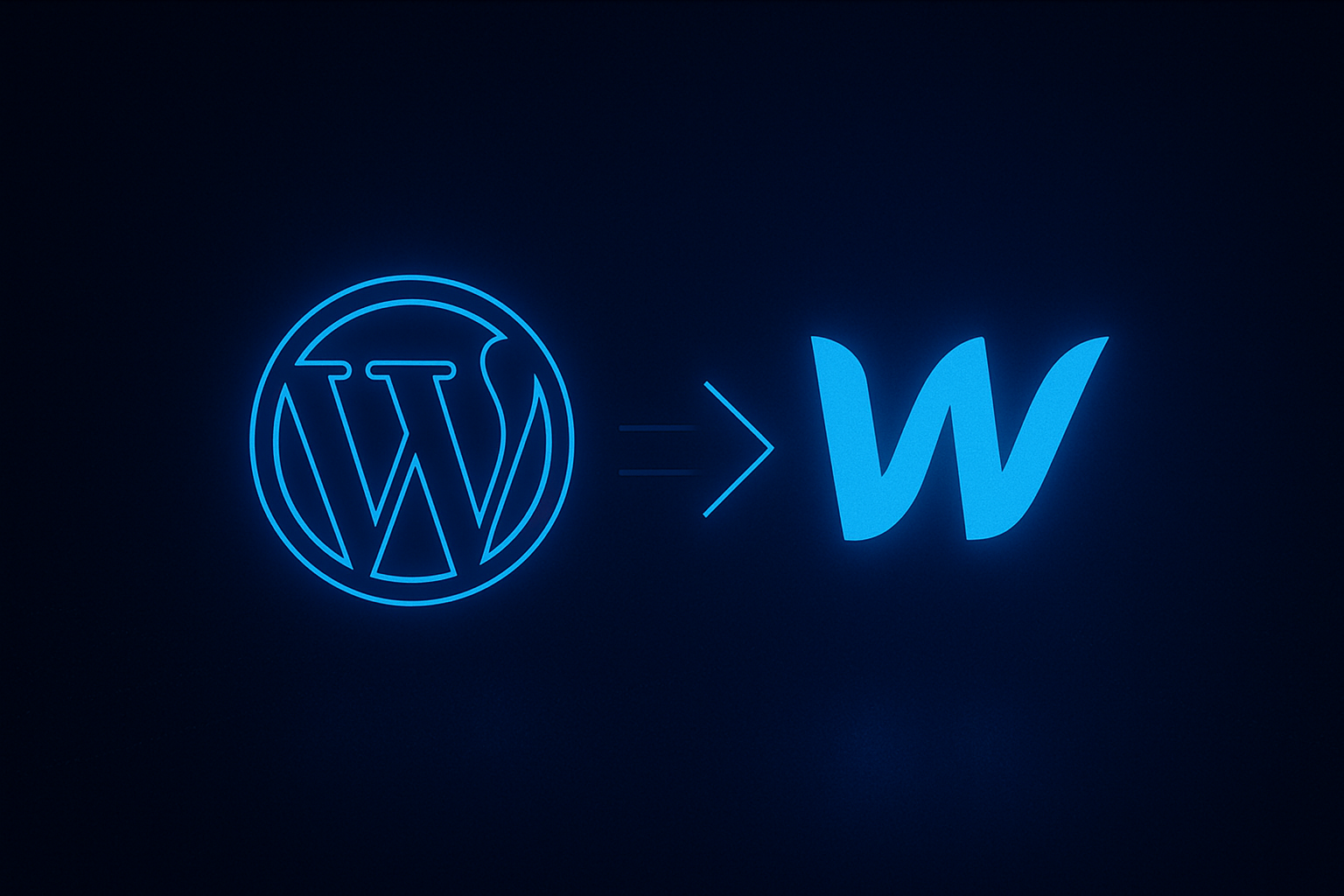Why Webflow Is Better Than WordPress for Business Websites

One of the main reasons businesses prefer Webflow is its intuitive interface. Unlike WordPress, which often requires coding knowledge or constant plugin installations, Webflow offers powerful no-code functionality. You can design and build pages visually, which saves time and reduces the need for external developers for every small change.
For example, if your marketing team wants to adjust a landing page, they can do it themselves without waiting for technical support.
Webflow was created with website design and UX/UI design in mind. The platform makes it easy to build a fully responsive design that works perfectly on desktops, tablets, and smartphones.
In contrast, WordPress often depends on website templates or additional plugins to achieve the same results. With Webflow, turnkey website development becomes faster because you can design exactly what you want, without limitations.
Webflow provides secure and fast website hosting out of the box. This eliminates the need to find third-party hosting providers, as is the case with WordPress.
The result is better website performance and reliability. Features like automatic backups, SSL certificates, and website speed optimization are included by default, so your business doesn’t have to worry about technical configurations.
When it comes to SEO optimization, Webflow has a big advantage. It allows direct editing of meta titles, descriptions, alt tags, and structured data without extra plugins.
With WordPress, you usually need to install and configure SEO plugins, which adds complexity and risk of conflicts. If your goal is to grow visibility online, Webflow provides a simpler path to search engine success.
For companies planning to sell products or services, Webflow offers built-in e-commerce tools. You can create a professional online store with customizable checkout, product pages, and payment integrations.
While WordPress also supports e-commerce through WooCommerce, it often requires multiple plugins and additional setup, making it harder to manage at scale.
With Webflow, your business maintains full content ownership. WordPress sites can sometimes face plugin vulnerabilities, theme updates, or even security breaches.
Webflow reduces these risks by providing a controlled ecosystem, ensuring better protection for sensitive business data.
Here’s a quick comparative analysis to make things clearer:
- Ease of use: Webflow’s intuitive interface wins over WordPress’s plugin-heavy approach.
- Design flexibility: Webflow offers pixel-perfect website design without coding.
- Hosting: Webflow includes website hosting; WordPress requires third-party services.
- SEO optimization: Built-in with Webflow, plugin-dependent in WordPress.
E-commerce: Native in Webflow, plugin-based in WordPress.
In today’s fast-moving digital world, businesses need websites that are easy to manage, secure, and ready to scale. Webflow delivers all of this: a powerful website builder, built-in hosting, seamless SEO optimization, and flexible e-commerce options.
If you’re considering upgrading your business website, Webflow is the smarter choice over WordPress.
Ready for a fast website launch with modern design and performance? Start exploring Webflow today and give your business the online presence it deserves.

.avif)
